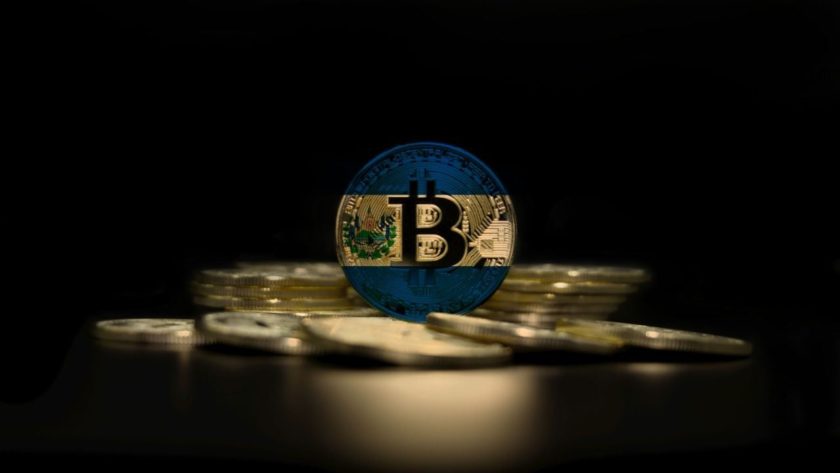Recently, there have been an increasing number of blockchain-based prediction markets (PMs) such as Augur, Bitcoin Hivemind, Amoveo, Gnosis, Cindicator, etc. PMs use the technology of smart contracts for bets on various issues. For example, one user could place $100 on President Donald Trump getting reelected for a second presidential term while another person is convinced that a Democratic candidate will win the Oval office in 2020. Once the election is over, the pot is automatically transferred to the winner of the bet.
At first sight, betting may not be the most obvious or efficient way to use blockchain to its full potential. Despite this, several experimental and theoretical studies show that PMs are not just about gambling. These markets are capable of producing revolutionary changes in many industries, including politics and science. In particular, PMs are capable of making society more farsighted, even in terms of civil development.
Related: Blockchain-Powered Prediction Platforms: Governance and Uses Beyond Gimmick Markets & Death Pools
“Money bets” as a financial truth serum. Bets have unique features that can benefit communities.
Since bets can be made on any event or issue, winning them depends not only on chance or knowing the rules of gambling (like in poker), but also on the player’s knowledge and intelligence in matters of real life — in psychology, economics, sports, politics, natural sciences, etc. Betting is some sort of a “truth serum” that requires the most honest and competent answer from the bettor. The one placing a bet isn’t only willing to sacrifice sharing some private information, but also to study the question further.
Back in 2005, the founder of Palm Computing and Handspring, Jeff Hawkings, suggested in his book “On Intelligence: How a New Understanding of the Brain Will Lead to the Creation of Truly Intelligent Machines” to consider the intellect to be a substitute to prediction. Keeping this terminology in mind, bets can be labeled as intelligence competitions in their purest form.
The highest bets, as a rule, are made by the most competent bettors, since they count on winning more than the others. The brightest example of this theory are bets in which there are many participants. A well-known example of collective bets is the bookmakers. At the end, the winner receives their capital back with additional profit.
A study from Deloitte showed that, even though many bettors are habitual speculators, there is also a small percentage of sports experts who are much more likely to win on average. Their bets, as a rule, are the most statistically favorable and the most accurate indication of the winner. If all of the bets made by competent bettors are aggregated, in most cases, the correct result will be revealed.
Also, these theories can be applied outside the realm of sports in areas like economics, politics and even natural sciences. Collective bets can be a powerful tool when players have the right not only to bet on future events but also to purchase others’ bets (contracts), like in the futures markets. This is where prediction markets come in. Bets on these markets allow an external observer to evaluate not only the most probable event but also the likelihood of each of the events discussed.
Prediction markets before the blockchain era: Achievements and political difficulties
Although sports betting has been around since ancient Rome, and political betting was present in the medieval Vatican as well as in the United States in the 19th century, these bets were considered merely as gambling by the society for some time. Only in the first half of the 20th century did famous economists Ludwig von Mises and Friedrich Hayek succeeded in popularizing PMs as a socially useful mechanism.
Real, large-scale experiments on the application of PMs began only at the turn of the 20th-21st centuries. The first major experiment of a political-focused PM took place in 1988 at the University of Iowa during the presidential election. Later, in the 1990s, other similar experiments were held. These were focused on various themes: from the box office revenues of Hollywood films to the prospects of thermonuclear fusion.
In 2001, Intrade launched in Ireland. Intrade was a website that allowed users to automatically bid on a wide range of issues. Many of its predictions regarding the 2008 and 2012 regional elections in the U.S. turned out to be much more accurate than expert forecasts and public opinion polls. In 2003, a similar Irish website, Tradesports even accepted bets on the date of the Saddam Hussein capture during the Iraq War, and with the apprehension imminent, the highest bets “guessed” the capture date rather swiftly.
In 2009, Almenberg, Kittlitz and Pfeiffer conducted a series of experiments in which they demonstrated the ability of PMs to accelerate scientific research. In the modern scientific community, communication is slow and similar tasks are sometimes investigated by independent groups that are not aware of each other’s results. However, it turned out that PMs between them, even without the sharing of information, allowed for the engagements as a single omniscient group, which was able to quickly identify the most realistic hypotheses among the many possible.
Despite all these successes, PMs are still far from mass adoption. Moreover, as in the case of politics, PMs were met with direct opposition. For example, at the end of 2012, the U.S. Commodity Futures Committee (CTFC) prohibited its citizens from visiting Intrade, citing economic considerations. The website’s profitability fell dramatically, and it was subsequently closed. Intrade was not the only internet-based PM that was subject to sanctions. In January 2019, all online gambling games were banned in the U.S.
It is hard to say whether all these sanctions were politically motivated, but certainly authorities may have the right to be worried. Should the collective “truth serum” allow citizens to better predict upcoming events, populists will have a hard time persuading “myopic” voters. Some politicians — with the aim of achieving their sordid political ambitions — may not hesitate to resort to deception, if the majority of voters would not notice it. However, just like with sports, political PMs can reveal the truth if a small number of “experts” with large bets take part. Thus, it is no surprise that PMs walk a fine line with regulators, as concerns regarding can range from the risk of using PMs as assassination markets or to lure officials to disclose confidential information, just to name a few.
Markets for predictions on the blockchain: Main ideas and advantages
Blockchain technology allows storing data about financial transactions, but also has the ability to keep record regarding user agreements. Often referred to as smart contracts, these deals have unlimited options of usage, including users’ betting on certain events. This is how it became possible to integrate the principle of PMs onto the blockchain.
Bitcoin Hivemind is the first PM project based on blockchain technology. It was launched in 2014 under the leadership of Paul Sztorc. A similar PM project, called Augur, followed soon after with the co-founder of Intrade, Ron Bernstein, and co-founder of the Ethereum blockchain, Vitalik Buterin, as consultants. In 2015, Aurgur’s initial coin offering (ICO) — one of the first ICOs in history — took place, gathering over $5 million in investment. Later, other blockchain-based PM projects — Gnosis, Amoveo, etc. — appeared on the scene.
The main advantage of the blockchain-based PMs in comparison to Intrade is decentralization. The absence of the need to use a centralized server and manual regulation has led to the following changes:
- PMs on the blockchain cannot be destroyed by administrative prohibition.
- PMs on the blockchain are sufficiently better protected from distorting the results, as they are transparent. There is no central leadership that can be bribed.
- PMs on the blockchain can guarantee a high level of anonymity for users, allowing them to share unpopular opinions.
Betting on any PM starts with someone proposing any question. For example, “Will Bitcoin exceed $20,000 by the end of 2019?” or “Will Trump win in 2020 Presidential election?”
From then on, all users can bet on whether the prediction turns out to be true or false with the blockchain registering conditions via smart contracts. At any time before the closure of betting, which is described in the contract (for example, before the end of the year or until the election results are announced), users can buy someone else’s bets. The market prices of these rates reflect the user’s assessment of the likelihood of certain events.
When the time to close these contracts comes, the blockchain network should receive information from the outside world to determine the winner, like Bitcoin’s (BTC) price or the election results. This is where blockchain-based oracles come into play. They inform the blockchain network whether the prediction was right or wrong. After the information is transferred, the bets of those who lost are automatically transferred to the winning party.
Oracles as a key technical problem of PMs on the blockchain
The creation of reliable smart contracts that “do not make mistakes” is one of the important technical issues of blockchain-based PMs, and it should be discussed in detail. Blockchain solves not only the problems of PMs but those of centralized markets as well. However, if smart contracts are dealing with the outside world, like those relating to elections or the results of an esports tournament, then it should be determined how the transfer of information will be implemented in a productive and detailed way. With PMs, this difficult task may present a bigger challenge, as the nature of the information that needs to be transferred depends on the subject of the dispute. At times, PMs just need to check numbers, but in some cases, they must conduct a detailed analysis of a political position of an individual.
Some oracles are just automated robots that visit financial websites and uncover information about exchange price rates, company capitalizations, etc. But this is not very useful for PMs that have questions that can relate to any topic, including those that even an advanced artificial intelligence or a robot cannot confidently explore and thus cannot substitute a person. Therefore, it would be unproductive to exclude a person from the information retrieval process. This is why PM developers prefer to include people, the so-called reporters, to feed information to the oracle. When the time comes to close a contract, reporters would provide a competent and honest answer.
At first glance, when the event has already occurred, there is no need for competence. But even such a simple question as “Did Donald Trump win the 2020 presidential re-election?” can be answered erroneously if the source of information is unreliable. The reporter should be able to distinguish the official election results from the preliminary ones. However, with a sufficient number of reporters, the probability of an error due to incompetence approaches zero. Reporters may have different competencies and thus choose which questions to become involved with.
The real problem surrounds the honest answers. A reporter can receive a reward for their work, but if large prize pool is at stake, there is a possibility for them being corrupted to lie — e.g., if providing a dishonest answer pays more than being honest in the outcome of an oracle. Even if this lie is revealed immediately after the contract is closed, the result may cause a PM participant to lose their funds. Any such corruption case discredits the network, which is why the oracles’ developers have come up with various methods of encouraging reporters to be honest.
The standard accounting of reporters’ reputation: Simple but insecure
Reputation is everything when there is no guarantee of trust. If a user is planning to give money to an exchange, store, broker, etc.,then it is common sense to verify their reputation beforehand. This can be either an informal reputation based on user feedback or a formal one — for example, the number of honest transactions against fraudulent ones. Initially, reputation would be enough to minimize the risks: If a trader has completed thousands of fair transactions in a row, there is a small chance that they would deviate later on.
In blockchain systems, a reporter’s reputation statistics can also be determined in a similar fashion. The higher the reputation of the source, the more often they will be invited to cooperate with the oracle and the more money they will earn. But a standard accounting of reputation in the form of an abstract points system has a serious problem that comes in the form of a retirement attack.
The idea is that while the reporter is engaging with the blockchain, his reputation is valued, but should the reporter leave the system, the reputation can be used to perform a malicious deed. The higher the reputation of the reporter, the less likely they will be to lie and hence will likely participate in closing the most expensive contracts. However, if somebody would suggest a large bribe, they could agree to lie because the reputation would not be important anymore, as the reporter could be intending to leave the system.
The problem of potential corruption is particularly acute for PMs, and developers are trying to find more effective solutions than just reputational accounting.
Augur and Bitcoin Hivemind’s solution: Reporters with financially convertible reputations
In order to prevent the problem of retirement attacks, the developers of Augur and Bitcoin Hivemind introduced an additional layer of protection. Good reporters are awarded REP and HIVE reputation tokens, which are freely traded on cryptocurrency exchanges. If desired, the reporter can convert their reputation tokens into financial income.
When closing any contract, several reporters can participate at once, between which a vote takes place to determine which of the PMs players have won. A reporter’s value depends on their reputation. Reporters get additional tokens for a correct answer and lose them for an incorrect one.
A system with reputational tokens is more secure from corruption, but economically, a threat is still possible. If the bettors’ stakes are high and the price rate of REP or HIVE is low, then a significant part of the token holders may be ready to lie for a larger reward.
Amoveo’s solution: Reporters bet on their answers
In the case of the Amoveo blockchain, reporters are also rewarded for correct answers and lose out with the wrong ones. But there are also some important differences in comparison to Augur and Hivemind.
First off, Amoveo has a full, independent blockchain network with a native currency — VEO — while Augur and Hivemind are add-ons over Ethereum and Bitcoin blockchains respectfully. In different situations, they use either REP and VOT tokens, or ETH and BTC.
Secondly, when closing a smart contract, Amoveo reporters do not vote for the chosen solution but make bets in their favor in the VEO currency. These bets can vary, depending on how confident the reporter is. The correct answer is not the one that has the maximum votes but rather the most volume. All collected bets are distributed between those who supported the correct answer. Meanwhile, the losers get nothing back.
In comparison to Augur and Hivemind, Amoveo has the following advantages:
- A reporter’s reward or loss does not depend on the price of the token. Reporters are free to choose the amount they want to risk.
- Freedom of bid size makes reporters more responsible. A user may adjust the size of the bet depending on how competent they are in the area.
- Reporter winnings can greatly depend on the complexity of the questions. If the question is elementary, then most probably the winnings will be small. But with complicated questions, a competent reporter may stake and therefore earn more in return. However, the very fact of the struggle means that the question is not optimal for an oracle to decide upon.
Could blockchain-based prediction markets bring a revolution?
Presently, PMs built using blockchains are just emerging. Despite the complexity of technical tasks, there are no insurmountable difficulties in the way of PMs for blockchains. Regardless of possible opposition to these markets, decentralized PMs have a chance to gain wider acceptance. Currently, the value of PMs is being recognized by intellectuals from a variety of areas — e.g., economists, political scientists, philosophers, natural scientists and engineers.
Moreover, it would be difficult to challenge the technology from a technical point of view but may also trigger a public discussion in which proponents of prohibitions are unlikely to win. There may undeniably be secrets that the state will defend at all costs for the safety of its citizens, for example, the plan for anti-terrorist action. There is a possibility that the state and PM supporters will compromise on a certain set of rules — just as in 2013, when the website PredictIt agreed with the U.S. government on several restrictions and was not closed, unlike other websites.
PMs have the potential to change the world, since their impact on society could be comparable not just to the advent of Bitcoin (as Roger Ver believes) but with the creation of the internet itself. PMs could help to choose viewpoints that could make humanity be more organized and farsighted.
How fast will the adoption of prediction markets on blockchains be? Could developers build systems that are well-protected from corruption? What does the future hold for the state and prediction markets? What branches of public life would be changed the most with the implementation of prediction markets? We are waiting for your comments.
The views and opinions expressed here are solely those of the author and do not necessarily reflect the views of Cointelegraph.
This article does not contain investment advice or recommendations. Every investment and trading move involves risk. You should conduct your own research when making a decision.
Anatoly Knyazev is a computer scientist and co-founder of Exante, Bitcoin Fund and Exan.tech. He started his career as a derivatives trader at his own fund in the early 2000s. He developed unique trading software, which turned into the Malta-based prime broker Exante. In 2012, Anatoly started the world’s first Bitcoin-only hedge fund.




